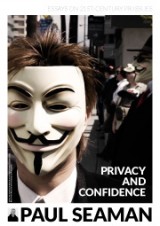Are modern PR thinkers spinning Isocrates’ legacy? (revised Dec 2013)
Back in January, I gave a lecture on the moral bankruptcy of the shame culture in ancient Greece to Associate Professor Josh Greenberg‘s fourth-year undergraduate class. Afterward, a debate arose about Isocrates’ legacy. It revolved around whether his ideas and lived-example laid the foundations for what some practitioners refer to as the morality of modern ethical two-way symmetrical public relations. Read on ›


